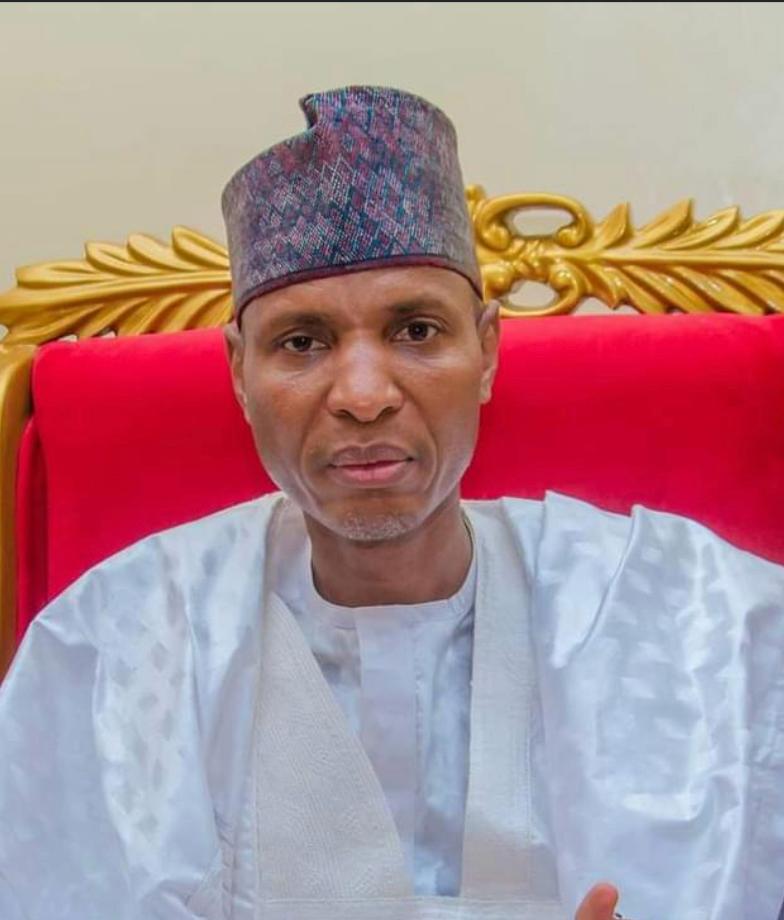
By Karen Ibrahim
Sokoto State, the Seat of the Caliphate presents a refreshing example of what a focused, united and harmonious relationship between the Executive and the Legislature can accomplish for the people. The judiciary for obvious reasons has maintained its safe distance and the possibility of being called upon to adjudicate between both the executive and legislature looks remote going by the indissoluble marriage – auren zobe- between the law making house and the implementing executive. The strong synergy between these arms of government has not only fostered political stability, but has also translated into a giant developmental strides.
And the Sokoto state people are the better for it,which can’t be said of the troubled Rivers State where the fractured relationship between the three arms led to near breakdown of law and order and eventually led to the federal government clamping down heavily on the executive and legislature. Hopefully when their six months suspension is lifted they will copy peaceful coexistence from Sokoto State.
While Governor Ahmad Aliyu Sokoto’s administration, has been praised for its strategic reforms and infrastructural developments, the consequential role of the House of Assembly has often been overlooked. Thankfully,Governor Sokoto has consistently acknowledged the House of Assembly as an important partner in the achievements he has recorded. He equally acknowledges the support of the party that sponsored him.
At the heart of this harmonious relationship are the distinct but complementary leadership styles of Governor Ahmad Aliyu Sokoto and the Speaker of the House, Rt. Hon. Tukur Bala Bodinga and the fact that men, though belonging to the different branches of government, share a common vision of a united and prosperous Sokoto State, through inclusive governance, fiscal responsibility, and legislative support.
Governor Ahmad Aliyu Sokoto, though constitutionally powerful has consistently demonstrated humility, openness, and an inclusive approach to governance. He is a man who governs by consensus. These attributes have endeared him to both the political class and the masses. Known for consulting widely and engaging critical stakeholders before making key decisions, the governor’s leadership model is based on collaboration,consultation rather than confrontation. His open-door policy and constant engagement and respect for the lawmakers shows a clear understanding of the constitutional balance of power.
Beyond personality, Governors Aliyu’s focus on result-driven governance has led to solid achievements in the key sectors like health, education, agriculture, infrastructure, and youth empowerment. Impactful programmes such as the rural electrification, upgrading of primary healthcare centres, road construction across the 23 local government areas, and the rehabilitation of schools are tangible outcomes of the working relationship between the two arms.
And the House led by Bodinga, has proven itself as worthy partners by performing its responsibilities with the interest of the state. Its power of oversight over the executive branch is exercised responsibly. And according to the Speaker, the House only summons any appointee when absolutely necessary.

On his part, the Speaker, Rt. Honourable Tukur Bala Bodinga, brings a calm but firm demeanour to presiding over the legislative chamber. Under his stewardship, the Sokoto State House of Assembly has functioned not as an appendage of the executive, but as a constructive partner. He is known for his ability to manage diverse political interests and navigate complex legislative procedures. The Speaker has kept the Assembly focused on its core responsibilities of lawmaking, oversight, and productive representation.
Speaker Bodinga’s willingness to engage in frank dialogue with the Executive has been key in preventing the kind of political impasses that has crippled governance in some other states. His legislative acumen, bolstered by a team of experienced and committed lawmakers, has ensured that the House remains both independent and aligned with the developmental agenda of the state.
The Sokoto State House of Assembly has passed several critical bills and effected amendments in recent times, that have significantly influenced good governance in the state. These include: The Sokoto State Fiscal Responsibility Law (Amendment) which greatly enhances transparency in public finance management and ensures budgetary discipline. It has enabled the Executive to plan more efficiently, prioritize spending, and minimize leakages.
Another consequential law which the present Assembly passed is the bill that mandates compulsory pre-marital medical screening for intending couples.Under the law intending couples must undergo tests for HIV/AIDS, hepatitis, sickle cell, genotype, and other related health conditions before marriage.The law has been well received by the public. What informed the passage of the bill by the House is the social and health challenges that the society is facing as a result of the failure of intending couples to carry out these tests. The thinking of the House is that society must take advantage of science which has helped us to know that if two people with AS genotypes marry that there is a very high probability of them having sickle cell children which would be a huge stress to the family and the society.
Another thoughtful bill is that on extravagant marriages. The House by passing this bill wants to put a stop to extravagant demands which have become an obstacle to young people marrying. The other consequential amendments passed includes that of the Sokoto State Discrimination Against Persons with Disability Law,Sokoto State Local Government 2009 Law, Land Tenancy, Zakat and Rural Roads.
The laws passed shows the Sokoto State House of Assembly as a very productive assembly. For example,without its passage of the law on rural roads agency the 7.7 km Gande–Male–Gwahitto–Fako Road, executed under the Rural Access and Agricultural Marketing Project (RAAMP) wouldn’t have been constructed without the instrumentality of the law.
These legislations were not passed in a vacuum; they were products of robust debate, inclusive public hearings, and cross-party consensus. Their successful implementation reflects the unity of purpose between both arms of government.
This model of cooperation between the executive and the legislature stands in sharp contrast to the crises in states like Rivers, Edo, and Ondo, where political power struggles have led to legislative boycotts, factional Assemblies, impeachment threats, and even physical confrontations.
In these troubled states, personal ambition often overrode the collective good, because the legislative branch of government resisted attempts to reduce it to rubber stamp or conversely, instruments of sabotage. The result is usually a breakdown in governance, halted development projects, and a loss of public confidence.
The difference in Sokoto is not a matter of superior constitutional provisions but of leadership maturity and institutional respect. Both Governor Ahmad Aliyu and Speaker Tukur Bodinga understand their roles and limitations. They realize that governance is not a zero-sum game and that the real winners of collaboration are the people.
The positive Sokoto state experience offers a compelling argument that Nigeria’s constitutional framework, while not perfect, is adequate for state-level governance when the operators respect each other. The frequent call for constitutional amendments to address executive-legislative conflicts may be premature if not misplaced. The real issue lies, not with the constitution itself, but with the disposition of the operators.
For instance, the 1999 Constitution clearly outlines the separation of powers and the principles of checks and balances. It vests law-making powers in the legislature, executive functions in the Governor, and judicial powers in the courts.
However, where these roles are misinterpreted or weaponized for personal gain, conflict becomes inevitable.
Thanks to the proven democratic credentials of Governor Ahmad Aliyu and the skillful leadership of the Sokoto State House of Assembly, the constitutional roles of each arm of government are not only respected, but have been leveraged for complementary action. It’s gladdening that the Executive does not see legislative oversight as a threat but as a necessary accountability mechanism.Similarly, the House does not equate legislative independence with obstructionism.
The case of Sokoto State illustrates that good governance thrives where mutual respect and a shared vision exist between branches of government. The Constitution, as it stands, provides ample room for coordination, accountability, and autonomy. What it cannot legislate into existence are character, maturity, and statesmanship.
Governor Ahmad Aliyu and Speaker Tukur Bala Bodinga have, through their conduct and collaboration, demonstrated that transformational governance is achievable when leaders rise above ego, focus on service, and work together for the common good. Their relationship is a model worth emulating across Nigeria.
As political cycles come and go, and as new actors emerge on the stage of governance, one hopes that the Sokoto example becomes a blueprint, not just for peaceful coexistence between branches of government, but for purposeful, people centred leadership across the country.

Join the Conversation